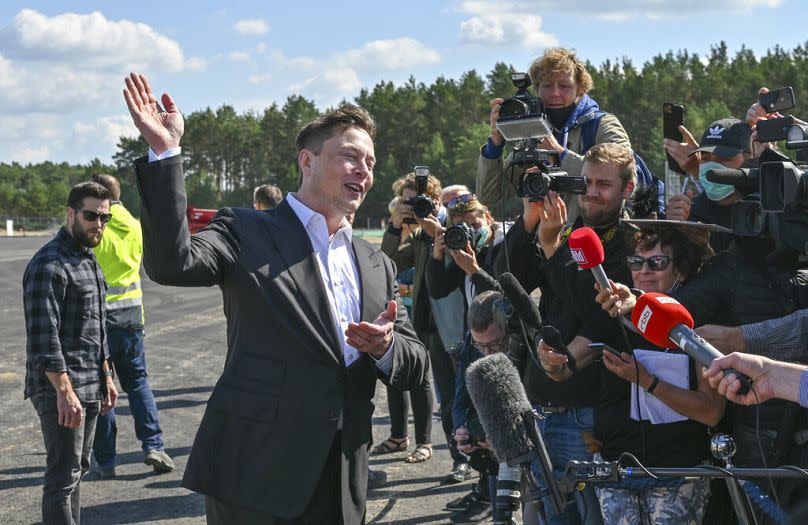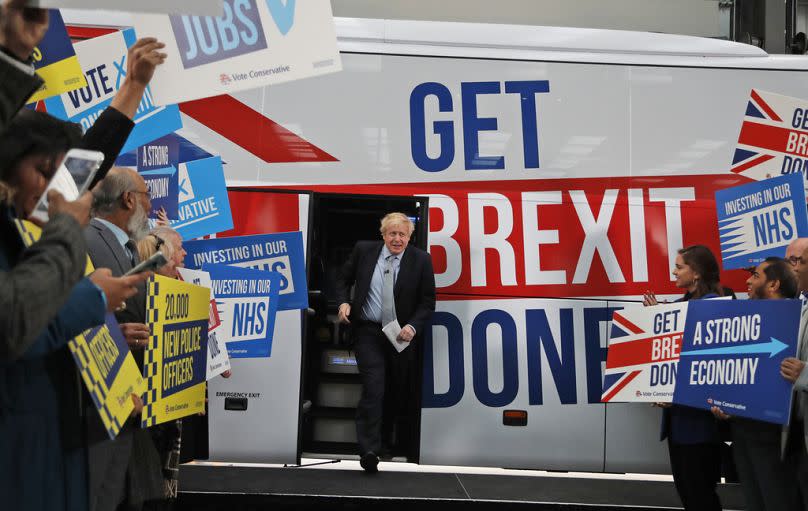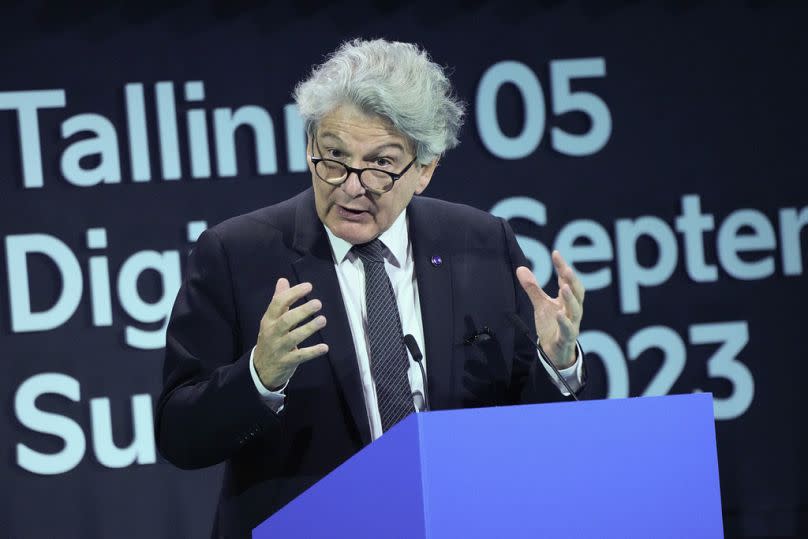Who in the EU gets to decide what can or cannot be said online?

A spectre is haunting Europe — not of communism, but of state censorship. In the name of fighting disinformation, the European Commission, through its Digital Services Act (DSA), is about to fundamentally alter what can be said or shared on the Internet, the public square of the 21st century.
The DSA, passed last year and whose major provisions will come into force next month, is a law ostensibly aimed at regulating Big Tech’s control over online content.
Many people have embraced it. Investigative journalist Julia Angwin expressed this well in a piece in the New York Times where she welcomed this "bold experiment" as "the most extensive effort toward checking the power of Big Tech".
"For the first time, tech platforms will have to be responsive to the public in myriad ways", she stated.
However, the DSA has little to do with public responsiveness or accountability. No European citizen has voted for it, or indeed, even had the opportunity to debate it. The DSA has been designed to be solely responsive to the needs of the unelected European Commission.
Big Tech vs Big Public
The DSA’s alleged goal of curbing the power of Big Tech’s control over the public square is a disingenuous charade. The attack on disinformation is just a code word for the EU political elite’s real fear and loathing of the public, whom they see as stupid enough to be duped by social media messages telling them who to vote for or who to hate.
Big Tech might be the foil, but curbing the Big Public is the real target of the DSA.
Of course, the European Commission cannot insult European citizens directly. But they can do so through an attack on Big Tech. Flaying Big Tech for publishing disinformation is a way of flaying the "social" in social media.

From the moment Brexit happened, the EU pushed the idea that lies had won it, not the truth. European Commission President at the time, Jean-Claude Juncker’s underlying message was that the general public in the UK must have been sufficiently stupid to believe whatever lies the politicians fed them.
What is the EU Digital Services Act and how will it impact Big Tech?
EU lawmakers, member states endorse act aimed at tackling harmful online content
Juncker warned of the threat of "galloping populism" across the continent, which sounds genuinely frightening, except when you understand that the danger was that millions of Europeans started voting for parties and policies not approved of by the Brussels elite.
Do Eurocrats know their electorate?
Brexit and then the election of Donald Trump represented a cultural revolt that shook Brussels to its foundations. The near-total rejection of the values of the ruling elites by a sizeable section of the electorate is the genesis of the DSA.
Instead of questioning their top-down values and technocratic managerialism, the EU elite has focused on the wisdom of allowing the revolting masses to pass judgment on them from below.

The lesson learned was that they needed to control what Europeans could read, see or hear if they were to avoid similar "mistakes" in the future. Hence, the DSA.
The DSA institutionalises the narrative that social media is responsible for the rise of populism in Europe. Eurocrats sincerely believe that the European electorate are gullible apathetic pawns at the mercy of Internet trolls and bots and, thus, should be protected for their own good.
It betrays an underlying defensiveness of the Brussels machine and its frail authority among the European electorate.
Their barely disguised disdain for the masses expresses itself in a wish to regulate the electorate's thoughts and actions by controlling social media content. The EU leaders as puppet masters neatly sums up their contempt for the European electorate.
Who is watching the watchers?
The defensiveness of Brussels fuels a powerful authoritarian dynamic too. The DSA is like the English Crown licensing system of the sixteenth and seventeenth centuries, where nothing could be legally printed without the approval of the Star Chamber, a secret court of the king’s councillors and judges and the official Stationer’s Company.
Today’s Star Chamber of the European Commission and their unaccountable and unelected flaggers of disinformation will act as judge, jury and executioners on policing social media.

We are back in Ancient Rome when poet Juvenal asked in his Satires, "Quis custodiet ipsos custodes?": who will watch the watchers?
If anyone doubts the censorious authoritarian dynamic of the DSA, then the recent behaviour of the European Commissioner for Internal Market Thierry Bretton should give them pause for thought.
On a recent visit to Silicon Valley, this is the Commissioner who declared, in the manner of King Louis XIV: "I am the enforcer. I represent the law, which is the will of the state and the people."
EU visits Silicon Valley: Thierry Breton puts Twitter under 'stress test' over bloc's new law
'No one will leave' the EU market because of new AI rules, says Thierry Breton
In the wake of the riots that gripped France earlier this month, the EU’s technocratic Sun King went on French television to declare that from 25 August, social networks will be obliged to immediately delete what is identified as "hateful content" or "[content] which calls for revolt" under penalty of being immediately barred from France if they did not comply.
Remarkably there was little comment on a Brussels Commissioner, not a French-elected politician, behaving like North Korea’s leader, threatening to end any public debate about deeply worrying developments in the country simply by curbing the possibility of free speech in France.
We should be able to say whatever we want online
The EU always claims to be upholding European values. The DSA upholds the divine rights of the European Commission to regulate what can or cannot be said online.
But Europe needs to return to the values of Baruch Spinoza, the Great Dutchman of the Enlightenment, who laid the moral and intellectual framework for the modern ideas of freedom.
Spinoza’s trailblazing epitaph of free speech, "in a free state, every man may think what he likes and say what he thinks" — which assumes that we all have the ability to judge what is true or false — is what Europe needs to embrace.
Let the court of public opinion decide what is truth, information or disinformation, not Big Tech nor the unaccountable European Commission. For that, we need more free speech, more freedom, certainly not the censorious DSA.
Dr Norman Lewis is a Visiting Research Fellow at MCC Brussels — Mathias Corvinus Collegium and Former Director at PricewaterhouseCoopers (PwC).
At Euronews, we believe all views matter. Contact us at view@euronews.com to send pitches or submissions and be part of the conversation.

 Yahoo News
Yahoo News 
